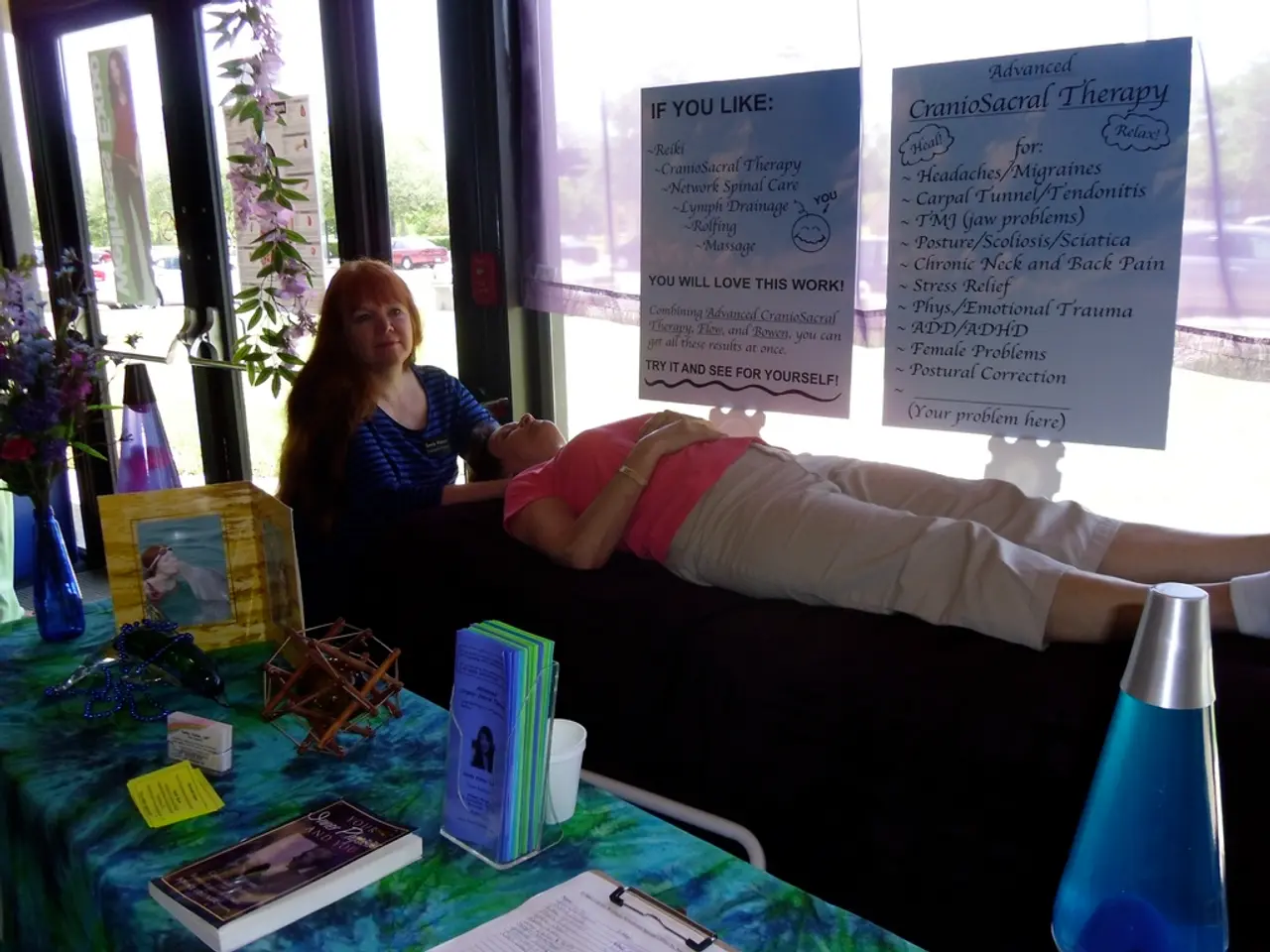Therapy Session for Many: Meaning, Advantages, Preview, and Insights Explored
Group therapy, a form of psychotherapy, offers a unique approach to mental health treatment by bringing together several individuals in each session, guided by one or more mental health practitioners. This innovative method has proven effective in addressing a wide range of common mental health concerns, such as anxiety, depression, grief, addiction, eating disorders, trauma, peer pressure, self-esteem issues (especially in teens), emotional regulation and behavior problems (in children), and relationship issues [1][2].
One of the key benefits of group therapy is its versatility. It supports a diverse range of participants, including adults, teens, and children, as they navigate these challenges. Group therapy is also integrated into both inpatient and outpatient mental health care to stabilize or support recovery across these conditions [5].
The group setting facilitates recovery by offering shared experiences, empathy, and coping skill development through activities like discussions, role-playing, and mindfulness exercises under a therapist's guidance [1][2]. For instance, psychoeducational groups may focus specifically on teaching about particular conditions and coping strategies [2].
Skills development groups aim to strengthen members' behavioral and cognitive resources, helping them make positive choices and avoid harmful situations. Cognitive behavioral group therapy, for example, restructures the beliefs a person has that lead to negative or harmful behaviors [4].
Group therapy can reduce wait times and give more people access to mental healthcare. It can also be a more affordable alternative to one-on-one therapy sessions [6]. Group therapy sessions provide a safe place for people to share their feelings and explore the nature of their mental health condition.
Support groups offer a space for people to cope with significant life changes, such as the loss of a loved one. Interpersonal process groups promote positive change by focusing on interpersonal group dynamics and less on individual psychology [3].
Irvin D. Yalom outlines 11 principles of group therapy, known as "the 11 primary factors," which include instillation of hope, universality, imparting information, altruism, the corrective recapitulation of the primary family group, development of socializing techniques, imitative behavior, interpersonal learning, group cohesiveness, catharsis, and existential factors [3]. Group therapy sessions provide space and time for people to explore uncomfortable existential factors, such as loss and death.
Recent studies have shown significant improvements in depressive symptoms and overall health after a 7-week mobile- and web-based group therapy program for treating depression [4]. Group therapy has also shown moderate effects on mental state compared with no treatment for substance use disorders [7].
In conclusion, group therapy is a valuable tool in the mental health field, offering a supportive and effective environment for individuals to address their mental health concerns and work towards recovery. Whether it's through psychoeducational groups, skills development groups, interpersonal process groups, or support groups, group therapy provides a safe and affordable space for people to share their experiences, learn new coping strategies, and work towards positive change.
References: 1. Group Therapy 2. What Is Group Therapy? 3. The 11 Principles of Group Therapy 4. The Effectiveness of Group Therapy for Depression 5. Group Therapy in Mental Health Care 6. The Benefits and Costs of Group Therapy 7. Group Therapy for Substance Use Disorders
- Group therapy, a form of mental health treatment, fosters a predictive environment for cognitive behavioral change in individuals with various mental health concerns, such as bipolar disorder, depression, and psoriasis, through shared experiences, empathy, and coping skill development.
- Skill development groups, a significant aspect of group therapy, aim at strengthening members' cognitive resources, particularly in restructuring the beliefs that lead to negative behaviors, and thus, promoting health-and-wellnessthrough positive choices and avoiding harmful situations.
- It has been proven effective in reducing wait times and enabling more people to have access to mental healthcare, as well as offering a safe and affordable alternative to one-on-one therapy sessions.
- Recent scientific research reveals that group therapy, both mobile- and web-based, has significant implications for improving depressive symptoms and overall health, making it a valuable resource in mental health treatment.
- By employing principles such as instillation of hope, universal understanding, and imparting information, group therapy promotes a comprehensive understanding and coping with existential factors like loss and death, thereby bolstering the mental health of participants.




